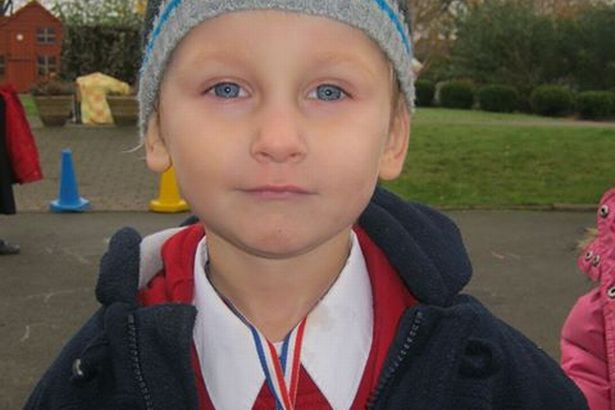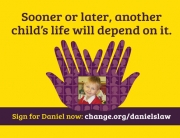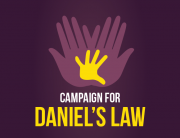I started the Campaign for Daniel’s Law in August 2013, in shock and horror at the suffering four-year-old Daniel Pelka endured over an extended period of time – in spite of the fact that he was in regular contact with professional staff, with a ‘duty of care’ for his well-being.
Within weeks, I had secured 50,000 signatures in support of the mandatory reporting of child abuse by professional staff and I travelled to London on September 16th to deliver my petition to Downing Street, one day ahead of the publication of Daniel’s Serious Case Review. Although some warned me against anticipating the content of that important report, I was absolutely convinced that the failure of school staff to help Daniel would be highlighted i.e. their repeated failure to report Daniel’s countless visible injuries and his painful emaciation over a period of months.
On September 17th, the findings of Daniel’s Serious Case Review supported my position. Report author Ron Lock observed that ‘such mandatory reporting laws as already exist in other countries may have given staff at Daniel’s school the confidence to report’.
There was a flurry of media interest across the week, with Children’s Minister Edward Timpson clinging to the groundless assertion that existing ‘statutory guidance’ (nonsense in itself – ‘guidance’ cannot be ‘statutory’) was ‘crystal clear’ i.e. that staff ‘should’ report. Government bluntly refused to debate the issue or to acknowledge that the introduction of appropriate legislation would provide clear instruction and remove any element of perceived choice for staff confronted with child abuse and considering reporting. For us to have confidence in the system, the word ‘should’ report needs to become ‘must’ report – and this instruction must then be underpinned by law.
In the last year, the media has highlighted numerous cases which further highlight the need for mandatory reporting – Savile, Caldicott and Cyril Smith are some of the most high profile; furthermore, there are two national child abuse enquiries currently on-going. Regionally, Coventry Council has done all it can to push mandatory reporting forward for national debate and is proactively revising child protection in all of its schools to take reporting in schools as far as possible without government legislation. Coventry Council is also recruiting an additional 50 social workers to help bolster its child protection resource – its campaign has come under fire because advertising features Daniel’s name, alongside images which are designed to provoke an emotional reaction. ‘Do it for Daniel’ is certainly bold, but rightly so – what more powerful call could there be to protect vulnerable children in Coventry? Daniel’s story must remain positioned firmly in the public domain until we have the laws we need to protect other vulnerable children and to support staff to report abuse.
The scale of nationwide abuse currently under investigation in settings including hospitals, boarding schools and children’s homes clearly shows that the current system isn’t protecting children as it should. As we set out on the road to the next General Election, it will be interesting to observe how each party handles growing public pressure for the introduction of mandatory reporting – an initiative which will require significant investment and supporting infrastructure.
Having U-turned on their historical blanket opposition to mandatory reporting, the NSPCC (increasingly obviously acting as an extension of government) now proposes a nonsensical mandatory reporting model in which legislation would only apply to public schools and social care homes (see previous blog for more information); disappointingly, children’s charity Barnardo’s has recently fallen in line and voiced support for the same (disappointing since Barnardo’s independently supported the introduction of mandatory reporting in Ireland, in the face of opposition from the NSPCC).
Although it got off to a strong start and has great support from various prominent MPs including Tom Watson and Sarah Champion, Labour’s position is far from clear. Statements made at the Labour Party Conference last week highlighted commitment to mandatory reporting policy which would not extend to junior staff, for example – this illustrates a spectacular lack of understanding of the issue. Junior staff require the support of law to make reports of child abuse in often very difficult circumstances – when a Head might choose institutional reputation over reporting, for instance, or when a line manager might choose to turn a blind eye… or when a senior colleague is the perpetrator, even. Labour spokesperson and former Director of Public Prosecutions
Keir Starmer also continues to press for the mandatory reporting of sexual abuse, remaining conspicuously silent with regard to any other form of abuse, which means we can only assume his proposals would not extend to help children like Daniel.
Yesterday, the Liberal Democrat Conference closed with a debate on child protection and I am delighted that a Tackling Child Abuse motion calling for the mandatory reporting of all forms of child abuse in England was passed unanimously. This clear indication of support is in line with the amendment to the Serious Crime Bill which Lib Dem Baroness Walmsley submitted to the House of Lords earlier this year, with the caveat that mandatory reporting is not a ‘silver bullet’ which will stop abuse, but that it is an important part of the child protection framework which our government has an absolute responsibility to deliver and uphold.
Former Secretary of State for Education Michael Gove spoke out in support of mandatory reporting some months ago, followed by David Cameron (in line with the NSPCC or vice versa). The cabinet was then reorganised and there has been no further statement on the Conservative position since; we can surely expect for this to be clarified imminently.
There is no doubt that the biggest opportunity to achieve the change we need is presented by the looming General Election… and the biggest threat is in the lack of understanding of those who are in a position to make a difference i.e. those in government, the MPs for whom we vote.
The issue of mandatory reporting is firmly in the public domain and on the national agenda; we have made tremendous progress in this past year, yet still it’s not enough. The next few months will be critical, in the lead up to May 2015; whilst the Mandate Now pressure group steps up activity in Westminster, the campaign for Daniel’s Law must continue to build the kind of numbers which provide a clear measure of public opinion and which cannot be ignored by those who vie for power – it’s time to make mandatory reporting a vote winner.
Our next landmark is 200,000 – every person you persuade to sign takes us a step closer… let’s Do it for Daniel.




